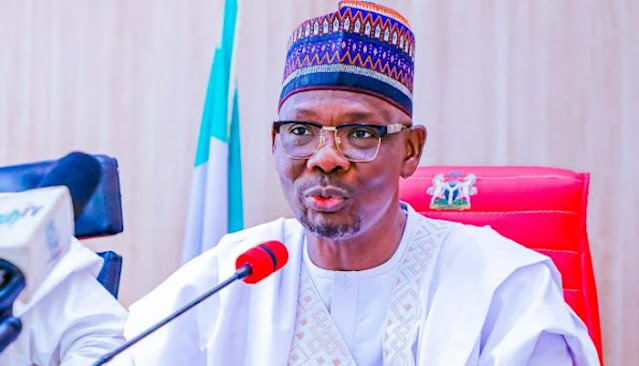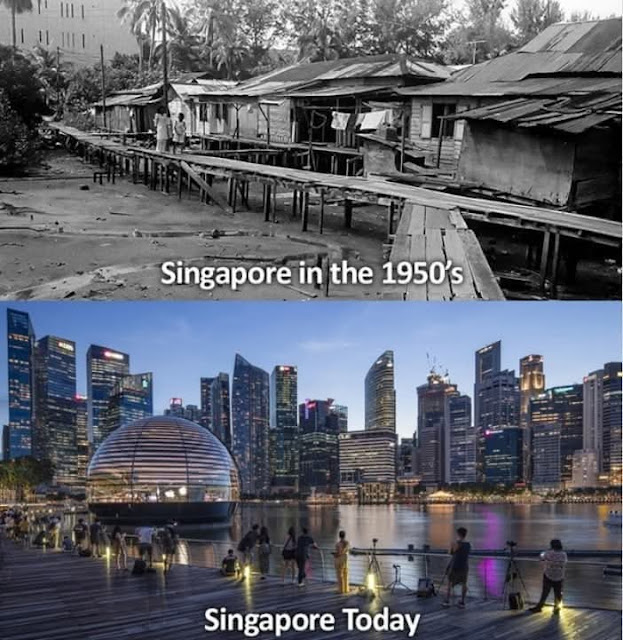On September 3, 2025, Nasarawa State Governor, Engineer Abdullahi Sule, issued a clarion call to residents of the state to participate en masse in the ongoing Continuous Voter Registration (CVR) exercise organized by the Independent National Electoral Commission (INEC). Speaking at a stakeholders’ meeting of the All Progressives Congress (APC) in Lafia, the state capital, Sule expressed deep concern over Nasarawa’s low voter registration turnout, which he warned could undermine the state’s political influence in the 2027 general elections. Represented by his deputy, Dr. Emmanuel Akabe, the governor urged APC leaders and members to mobilize communities across the state’s 13 local government areas (LGAs) to register and obtain their Permanent Voter Cards (PVCs). This call to action, echoed by APC State Chairman Aliyu Bello and Speaker of the Nasarawa State House of Assembly Danladi Jatau, reflects a broader effort to strengthen democratic participation and ensure that Nasarawa’s voice is heard in shaping Nigeria’s political future.
The Context of Sule’s Call
Governor Sule’s appeal comes at a critical time for Nasarawa State and Nigeria as a whole, as the nation prepares for the 2027 general elections, which will determine the next president, governors, and legislators. The CVR, which commenced its in-person phase on August 25, 2025, following a week of online pre-registration, is a vital component of INEC’s strategy to update the voter register and ensure that all eligible citizens can exercise their franchise. According to INEC, the exercise includes fresh registrations, voter transfers, updates of voter details, and replacements of lost or damaged PVCs. In Nasarawa, however, recent data indicates that the state ranks among the lowest in voter registration participation, a trend that Sule described as a “threat to our political influence” in future elections.
Nasarawa, known as the “Home of Solid Minerals,” is a strategically important state in Nigeria’s North-Central region, with a population of approximately 2.5 million and a diverse ethnic composition, including the Gwandara, Eggon, and Alago communities. Despite its economic potential, driven by solid mineral resources and agriculture, Nasarawa faces challenges such as infrastructure deficits, unemployment, and low political engagement. The low voter registration turnout, as highlighted by Sule, is particularly concerning given the state’s rapidly growing population, which Speaker Danladi Jatau noted does not reflect in the number of registered voters.
Sule’s call to action is rooted in the recognition that voter registration is the foundation of democratic participation. Without a PVC, citizens cannot vote, effectively silencing their voices in choosing leaders who will address their needs. The governor’s emphasis on mobilizing residents at the grassroots level—through constituencies, wards, and polling units—underscores the urgency of increasing voter turnout to strengthen Nasarawa’s political clout. This message was reinforced by APC Chairman Aliyu Bello, who urged party members to take advantage of the CVR to secure their voting rights, and by Speaker Jatau, who highlighted the discrepancy between the state’s population growth and its voter registration figures.
The Political Landscape of Nasarawa State
Nasarawa State has been a stronghold of the APC since the party’s formation in 2013, with Governor Sule, elected in 2019 and re-elected in 2023, leading the state through a period of infrastructural development and economic reforms. His administration has prioritized projects such as the Lafia Airport, rural road networks, and solid mineral exploration, earning praise from stakeholders but also facing criticism over issues like communal conflicts and unemployment. As Sule approaches the end of his second term in 2027, the question of succession has become a focal point of political discourse, with the APC’s internal dynamics shaping the state’s electoral strategy.
The stakeholders’ meeting where Sule made his call was a significant event, drawing APC leaders from across Nasarawa’s 13 LGAs, including federal and state lawmakers, commissioners, local government chairmen, and grassroots mobilizers. During the meeting, APC Chairman Aliyu Bello reaffirmed the party’s loyalty to Sule, disclosing that the state’s party executives had unanimously agreed to support any governorship candidate he endorses for 2027, regardless of their senatorial zone. This decision, Bello stated, was aimed at fostering party unity and ensuring victory in the upcoming elections. “As loyal party members, we are ready to stand behind whoever His Excellency chooses as the APC flag bearer in 2027. Our focus is unity and victory for the party,” Bello declared.
However, the issue of zoning remains a contentious one in Nasarawa’s politics. The state has a history of rotating the governorship among its three senatorial zones—Nasarawa North, Nasarawa South, and Nasarawa West—to promote inclusivity and reduce political tensions. Sule, who hails from Nasarawa North, succeeded Senator Umaru Tanko Al-Makura from Nasarawa South, prompting calls for the 2027 governorship to return to Nasarawa West. Stakeholders from Nasarawa West, led by former governor Senator Abdullahi Adamu, have argued that the zone should produce the next governor, citing the precedent set by the state’s founding fathers. This zoning debate, while not directly addressed in Sule’s voter registration call, underscores the importance of broad participation to ensure a fair and representative electoral process.
The Importance of Voter Registration in Nigeria’s Democracy
Voter registration is a cornerstone of any democratic system, enabling citizens to exercise their constitutional right to choose their leaders. In Nigeria, where electoral processes have often been marred by irregularities, low turnout, and voter suppression, the CVR is a critical tool for ensuring an inclusive and credible electoral process. According to INEC, Nigeria’s voter register stood at 93.4 million as of August 2025, but millions of eligible voters, particularly in states like Nasarawa, remain unregistered due to apathy, logistical challenges, and lack of awareness.
Governor Sule’s alarm over Nasarawa’s low voter registration turnout is grounded in the state’s historical electoral performance. In the 2023 general elections, Nasarawa recorded one of the lowest voter turnouts in the North-Central region, with only 30% of registered voters casting their ballots, according to INEC data. This low participation rate, coupled with the state’s lag in new registrations, threatens to diminish its influence in national politics, where states with larger voter populations wield greater electoral power.
The CVR, which began its in-person phase on August 25, 2025, and concluded on August 30, 2025, following an online pre-registration phase from August 18, offers a window for Nasarawa residents to register and update their voter details. INEC’s Resident Electoral Commissioner (REC) for Nasarawa, Dr. Shehu Wahab, emphasized the importance of the exercise, warning against underage registration and multiple registrations, which could lead to sanctions. He also cautioned political aspirants against premature campaigning, noting that such actions undermine the electoral process and set a dangerous precedent for political conduct.
Sule’s call for mass voter registration aligns with broader efforts to strengthen Nigeria’s democracy. The 2023 general elections were marked by controversies, including allegations of voter suppression, violence, and logistical failures, as noted by the European Union observer mission. These issues led opposition candidates, including Atiku Abubakar and Peter Obi, to reject the results and call for a new election. Against this backdrop, increasing voter registration in states like Nasarawa is seen as a step toward restoring trust in the electoral process and ensuring that citizens’ voices are heard.
Challenges to Voter Registration in Nasarawa
Nasarawa’s low voter registration turnout is driven by several factors, including logistical barriers, lack of awareness, and political apathy. The state’s rural terrain, with many communities accessible only by challenging roads, poses a significant obstacle to reaching INEC registration centers. Additionally, inadequate sensitization campaigns have left many residents unaware of the CVR process or its importance. Economic challenges, such as poverty and unemployment, further discourage participation, as many citizens prioritize daily survival over electoral engagement.
Communal conflicts, particularly in areas like Keana and Obi LGAs, have also disrupted voter registration efforts. The Tiv/Alago crisis in Keana, for example, has displaced communities and created security concerns, making it difficult for residents to access registration centers. Governor Sule has taken steps to address these conflicts, collaborating with security agencies and the National Boundary Commission, but lasting solutions are needed to ensure safe and inclusive voter registration.
Political apathy is another significant challenge. Many Nasarawa residents, particularly young people, feel disillusioned with the political process, citing unfulfilled promises and corruption as reasons for disengagement. A 2023 report by the National Bureau of Statistics found that only 25% of Nigerian youth trust the electoral process, a trend that is evident in Nasarawa. Sule’s call for mass mobilization aims to reverse this trend by encouraging grassroots leaders to educate communities about the power of their votes.
Opportunities for Democratic Empowerment
Despite these challenges, the CVR presents significant opportunities for Nasarawa to strengthen its democratic participation. By mobilizing residents to register, the state can increase its voter base, enhancing its influence in national elections. A larger voter population could also pressure political leaders to prioritize Nasarawa’s development needs, such as improved infrastructure, healthcare, and education.
Sule’s emphasis on grassroots mobilization offers a model for engaging communities at the local level. APC leaders, traditional rulers, and civil society organizations can play a key role in sensitizing residents, particularly in rural areas, about the importance of voter registration. The involvement of the Nasarawa State House of Assembly, led by Speaker Danladi Jatau, further strengthens this effort, as lawmakers can leverage their constituencies to drive participation.
The CVR also provides an opportunity to empower marginalized groups, such as women and youth. Women, who make up nearly half of Nasarawa’s population, are often underrepresented in the voter register due to cultural and logistical barriers. Initiatives to target female voters, such as mobile registration units and community-based campaigns, could boost their participation. Similarly, youth engagement programs, including social media campaigns and partnerships with student organizations, could address apathy and encourage young people to register.
Implications for the 2027 Elections
The 2027 general elections will be a defining moment for Nigeria, with the presidency, governorships, and legislative seats up for grabs. In Nasarawa, the elections will determine Sule’s successor, as he is constitutionally barred from seeking a third term. The APC’s dominance in the state positions it as the frontrunner, but low voter turnout could embolden opposition parties like the Peoples Democratic Party (PDP) or Labour Party (LP), which gained traction in the 2023 elections due to the “Obi-dient” movement led by Peter Obi.
Sule’s call for mass voter registration is a strategic move to consolidate the APC’s base and ensure a strong electoral performance. The party’s decision to back Sule’s choice for the 2027 governorship candidate, as announced by Chairman Aliyu Bello, aims to maintain unity and avoid internal rifts that could weaken its chances. However, the zoning debate, with Nasarawa West stakeholders pushing for the governorship, could create tensions if not handled carefully. Sule has promised a free and fair primary process, emphasizing that “true political power comes from Allah” and pledging to support a candidate who will sustain his administration’s achievements.
Nationally, the 2027 elections are expected to be highly competitive, with ongoing discussions about potential candidates like Peter Obi and Goodluck Jonathan, as noted in posts on X. The low voter turnout in states like Nasarawa could influence the national outcome, as states with higher voter populations, such as Lagos and Kano, wield disproportionate electoral power. By increasing voter registration, Nasarawa can strengthen its position in the national political landscape, ensuring that its interests are represented in Abuja.
Broader Context: Nigeria’s Democratic Challenges
Nigeria’s democracy, now in its 26th year since the return to civilian rule in 1999, faces significant challenges, including voter apathy, electoral violence, and institutional weaknesses. The 2023 general elections, which saw Bola Tinubu of the APC elected president, were marred by controversies, including allegations of vote rigging and logistical failures. The European Union observer mission noted a “lack of transparency and operational failures” that reduced trust in the process, while opposition candidates rejected the results.
Voter registration is a critical step toward addressing these challenges. A robust voter register ensures that elections reflect the will of the people, reducing the risk of manipulation. However, Nigeria’s voter turnout remains low, with only 27% of registered voters participating in the 2023 elections, according to INEC. This trend is particularly pronounced in states like Nasarawa, where logistical and socio-economic barriers exacerbate apathy.
The Federal Government and INEC have taken steps to improve the electoral process, including the introduction of the Bimodal Voter Accreditation System (BVAS) and the expansion of the CVR. However, these efforts must be complemented by grassroots mobilization, as exemplified by Sule’s call. Civil society organizations, such as the Transition Monitoring Group (TMG), have also emphasized the need for voter education to boost participation and reduce electoral malpractices.
Public and Stakeholder Reactions
Sule’s call for mass voter registration has been met with widespread support from stakeholders in Nasarawa. The Nigerian Civil Service Union (NCSU) in Nasarawa commended the governor’s initiative, stating, “Increased voter registration will empower our people to choose leaders who will address their needs.” Traditional rulers, such as the Emir of Lafia, HRH Justice Sidi Bage (rtd), urged communities to heed the governor’s call, emphasizing the importance of civic engagement.
On platforms like X, reactions have been mixed. Some users praised Sule’s proactive approach, with one stating, “Kudos to Governor Sule for pushing voter registration. Nasarawa needs to step up!” Others expressed skepticism, citing logistical challenges and distrust in the electoral process. “What’s the point of registering when votes don’t count?” asked a user, reflecting a broader sentiment of disillusionment among some Nigerians.
The Path Forward
As Nasarawa prepares for the 2027 elections, Governor Sule’s call for mass voter registration sets the stage for a more inclusive and participatory democratic process. The success of this initiative will depend on several factors, including effective mobilization, improved security, and enhanced voter education. The APC’s commitment to unity and a fair primary process will also be critical in maintaining its dominance in the state.
For Mrs. Biobelemo Sawyer, the task of mobilizing communities falls to the civil service, which must work closely with INEC and local leaders to ensure a smooth CVR process. Initiatives such as mobile registration units, community outreach programs, and partnerships with youth and women’s groups could boost participation. Addressing logistical barriers, such as poor road networks and security concerns, will also be essential.
Nationally, Nasarawa’s efforts could serve as a model for other states grappling with low voter turnout. By prioritizing grassroots engagement and leveraging the influence of traditional and political leaders, the state can demonstrate the power of collective action in strengthening democracy.
Conclusion
Governor Abdullahi Sule’s call for mass voter registration in Nasarawa State is a bold and timely initiative to enhance democratic participation and ensure that the state’s voice is heard in the 2027 general elections. By addressing the low voter registration turnout, Sule aims to empower residents, strengthen the APC’s electoral prospects, and position Nasarawa as a key player in Nigeria’s political landscape. The involvement of APC leaders, lawmakers, and traditional rulers underscores the importance of collective action in achieving this goal.
As Nigeria navigates its democratic challenges, Nasarawa’s efforts highlight the critical role of voter registration in building a more inclusive and representative electoral process. While challenges such as logistical barriers and political apathy remain, the opportunities for empowerment and reform are significant. With strong leadership and sustained commitment, Nasarawa can lead the way in demonstrating the power of an engaged citizenry in shaping the future of Nigeria’s democracy.






